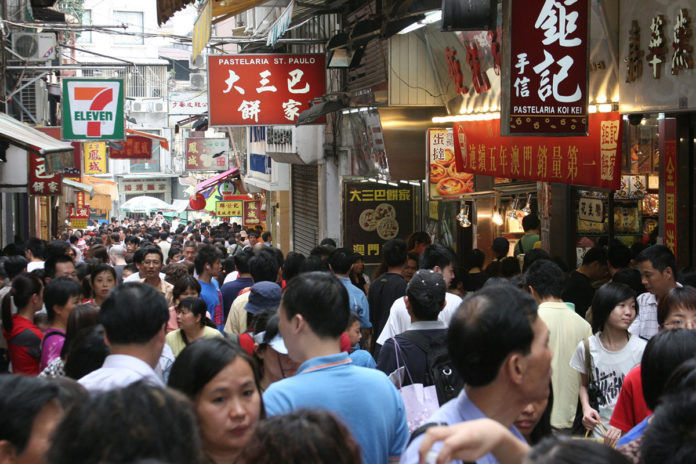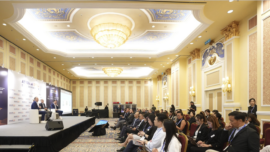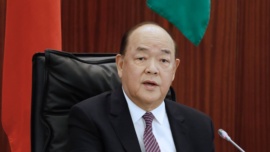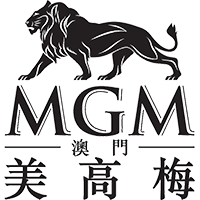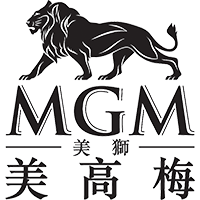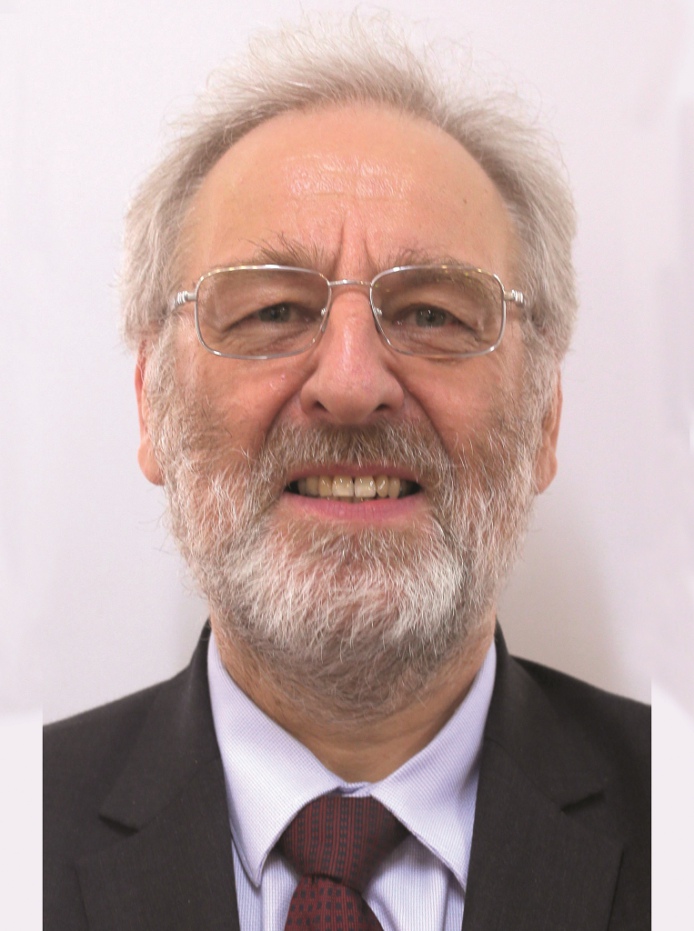
Macau Business | June 2024
Keith Morrison – Author and educationist
Like many other parts of the world, Macau is experiencing a population change. It is common knowledge that Macau’s population is living longer. In 2013, the proportion of its population aged 65 and above was 8.4 per cent; in 2023 it was 14 per cent, projected to rise to 23.3 per cent in 2034. Further, the number of people in the 25 to 34 age group, i.e. those who might have children, whilst they comprised 16.7 per cent of the population in 2023, is projected to fall to 10.2 per cent in 2034. As graph 1 shows, in the last ten years Macau’s population aged 65 and above grew dramatically, by 85 per cent (rounded), whilst the number of live births fell by half (49.57 per cent) (see graph 2). The younger population (aged 0-4 years) is projected to fall from 4.3 per cent in 2023 to 3.4 per cent in 2034.
The ramifications of these simple figures are already engaging Macau’s government, for example, building accommodation for the increasing elderly population in Macau. Nevertheless, more can be done for elderly health services. Why are there daily queues of elderly patients waiting for treatment in Macau’s hospitals and health centres? What is being done to augment the massively over-stretched and under-provided mental health provision and services in Macau, to promote well-being, and, indeed, not only for the elderly but for all age groups? Despite recent building programmes, there are still insufficient homes for the elderly providing a decent, stimulating, and caring environment, together with a high quality of life rather than endurance and suffering in a socially withering, boring environment.
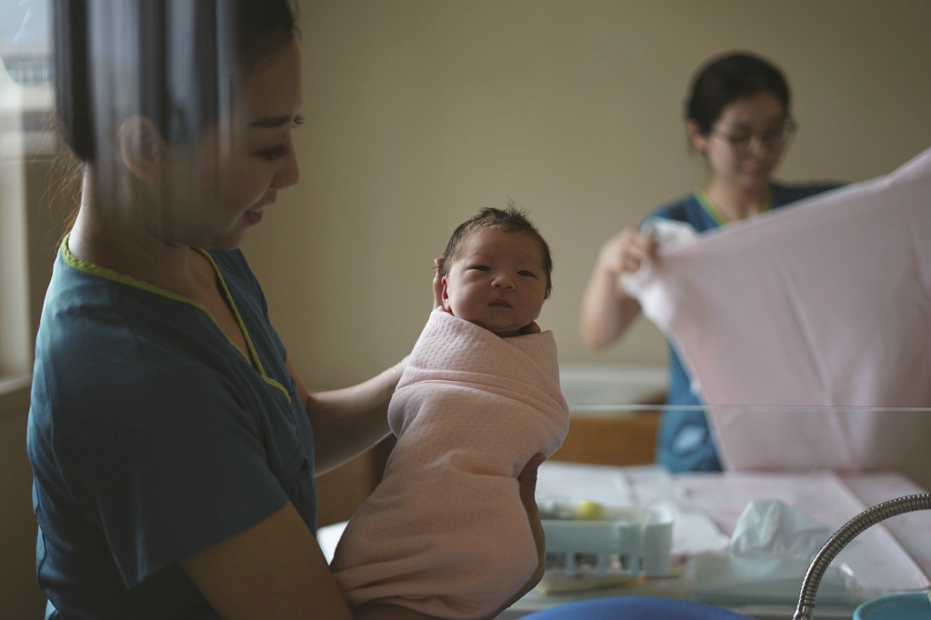
We hear many, many stories of young adults of child-rearing age in Macau deciding not to have children. It is little surprise that the birth rate is falling in Macau. Why is this? What incentives and provisions are there for bringing children into the world in Macau? Can young Macau couples afford to have children? In other parts of the world, financial help from the government for all parents bringing up children lasts until the children are 18 years of age, regardless of parents’ income, i.e. equality for all. Not so in Macau. This raises an ongoing and massive agenda, regarding affordable accommodation, job security, and sufficient income to raise children, to give them a reasonable, enjoyable childhood and subsequent adulthood. These point to the need for considerable investment in improving health care, education, providing for children, social welfare, ensuring their well-being and a positive and stimulating environment for bringing up children with their families, not only giving individual handouts; it is a system-level as well as an individual-level support matter. No wonder, perhaps, that fewer people in Macau have babies.
It is difficult to reconcile Macau’s huge GDP and steps taken to further its ‘gold business card’, with the need for all its population, young and old, to have a better quality of life. Where is Macau’s government providing sufficient all-round care and support for the elderly and child rearing in Macau? Only with having all these available and accessible services and support will the elderly be able to look forward to retirement without apprehension, fear, and despair, and will the younger, child-bearing population be able to afford to have children and give them a decent life. This places societal welfare at the top of a government agenda, not simply the amassing of wealth, flourishing business, and putting crowded streets of tourists at the topic of the ‘to do’ list.
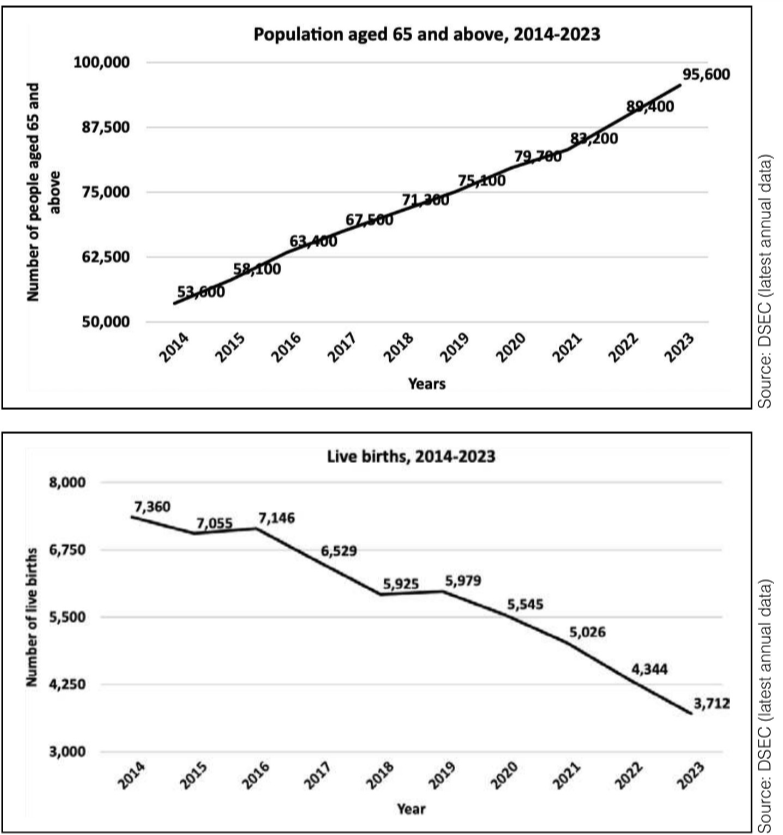
Source: DSEC (latest annual data)




